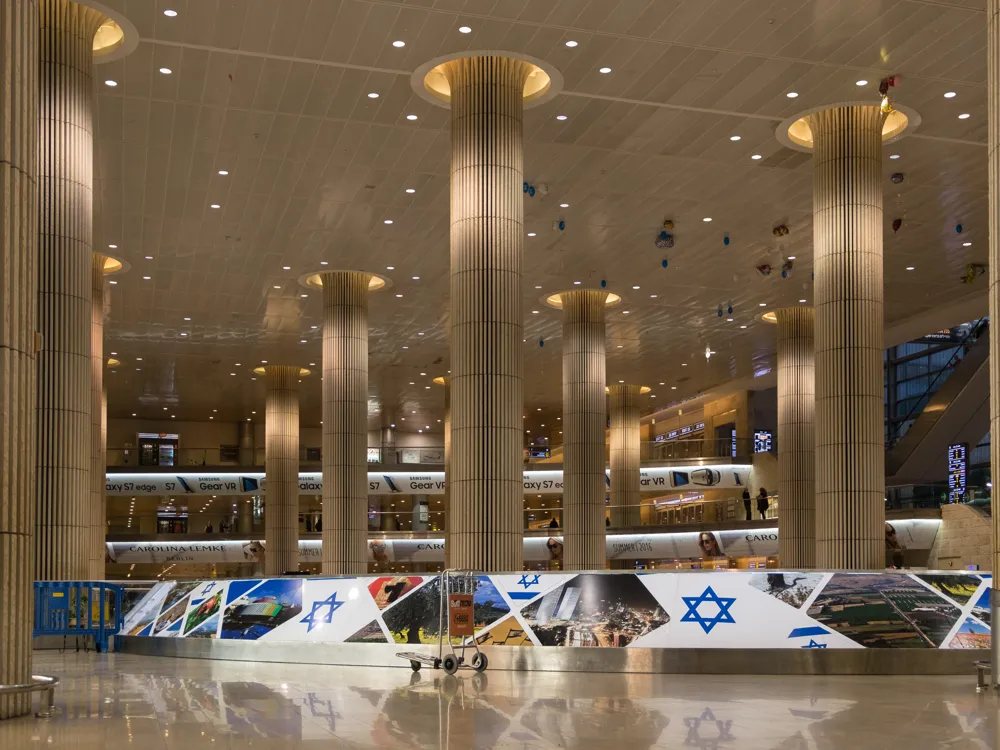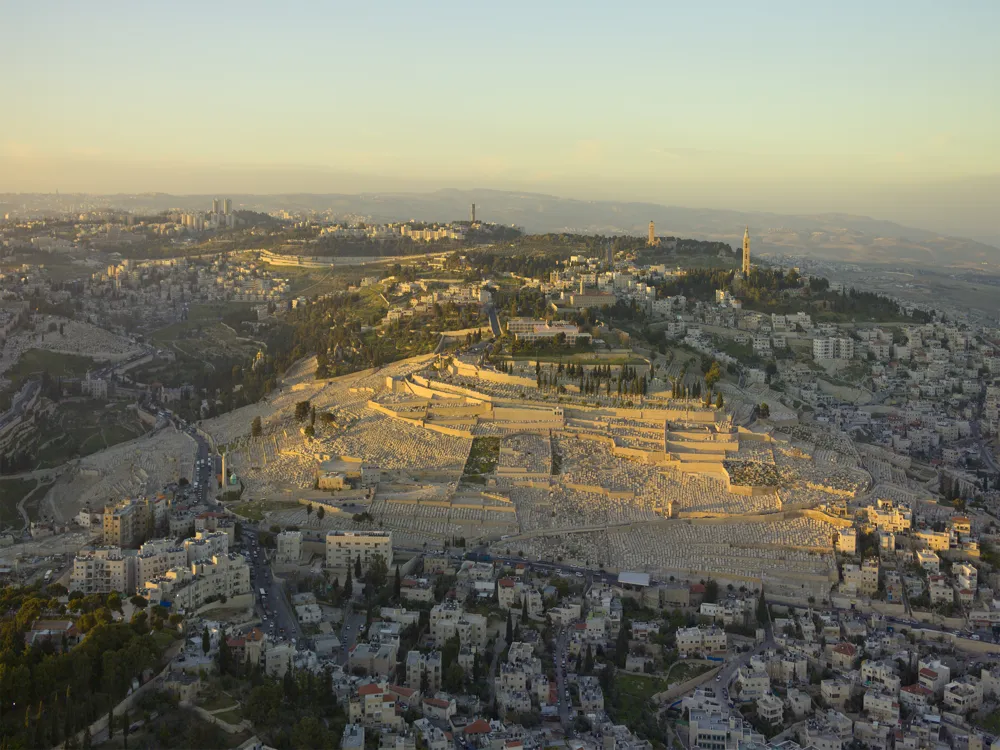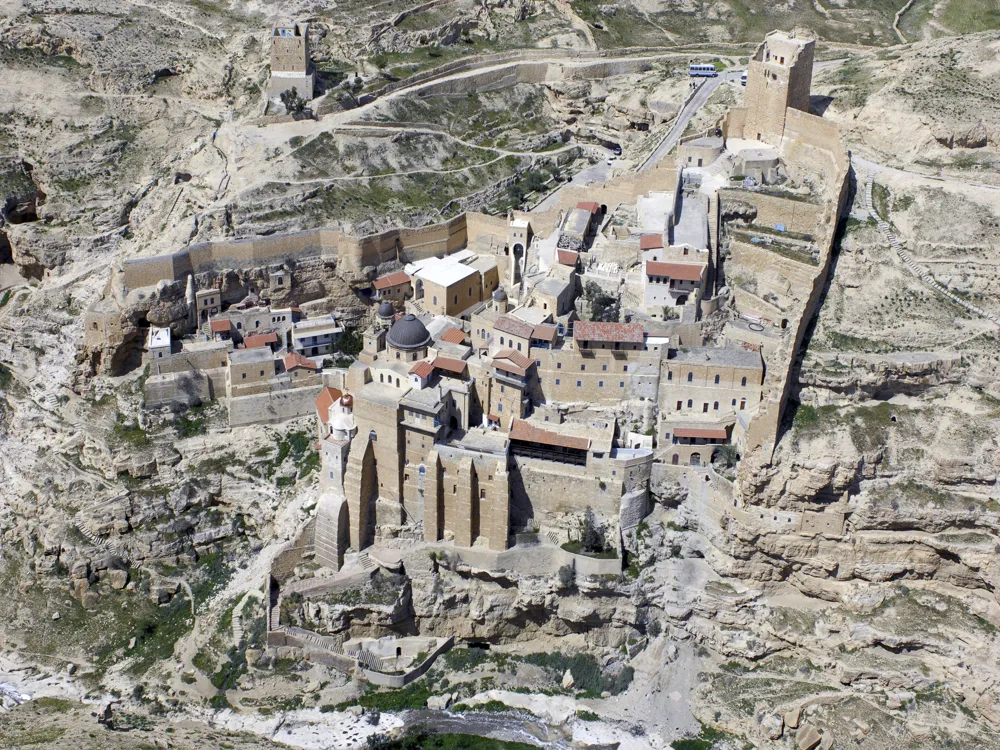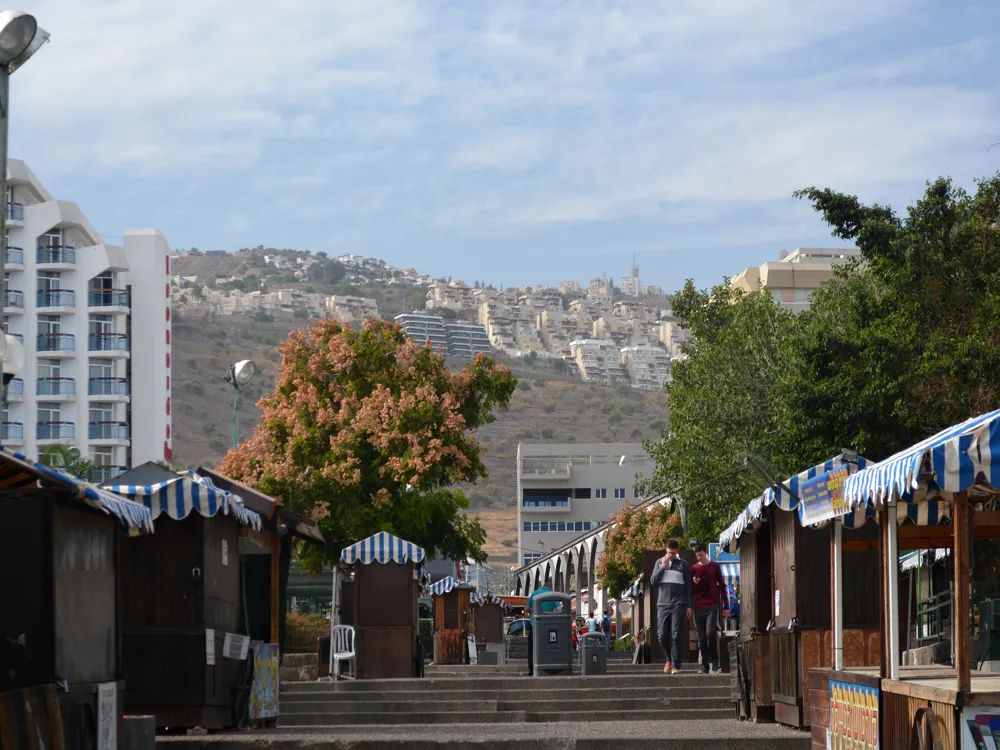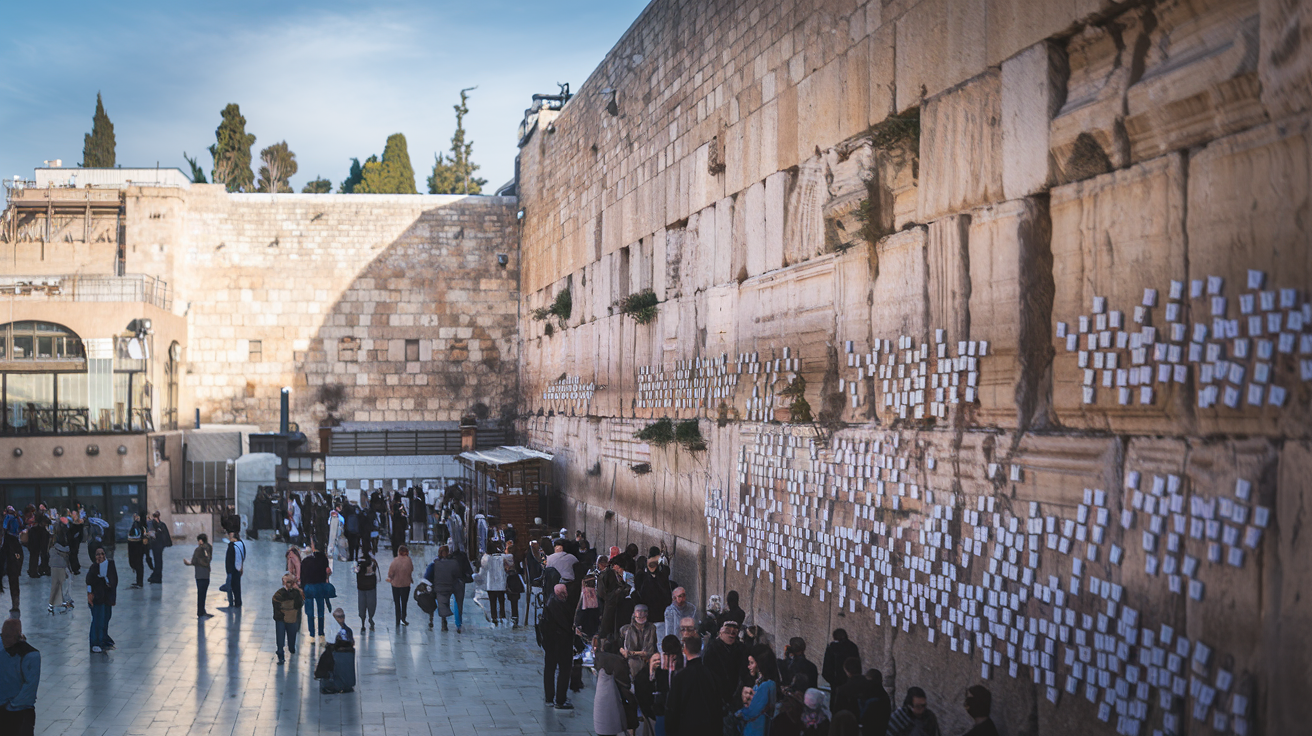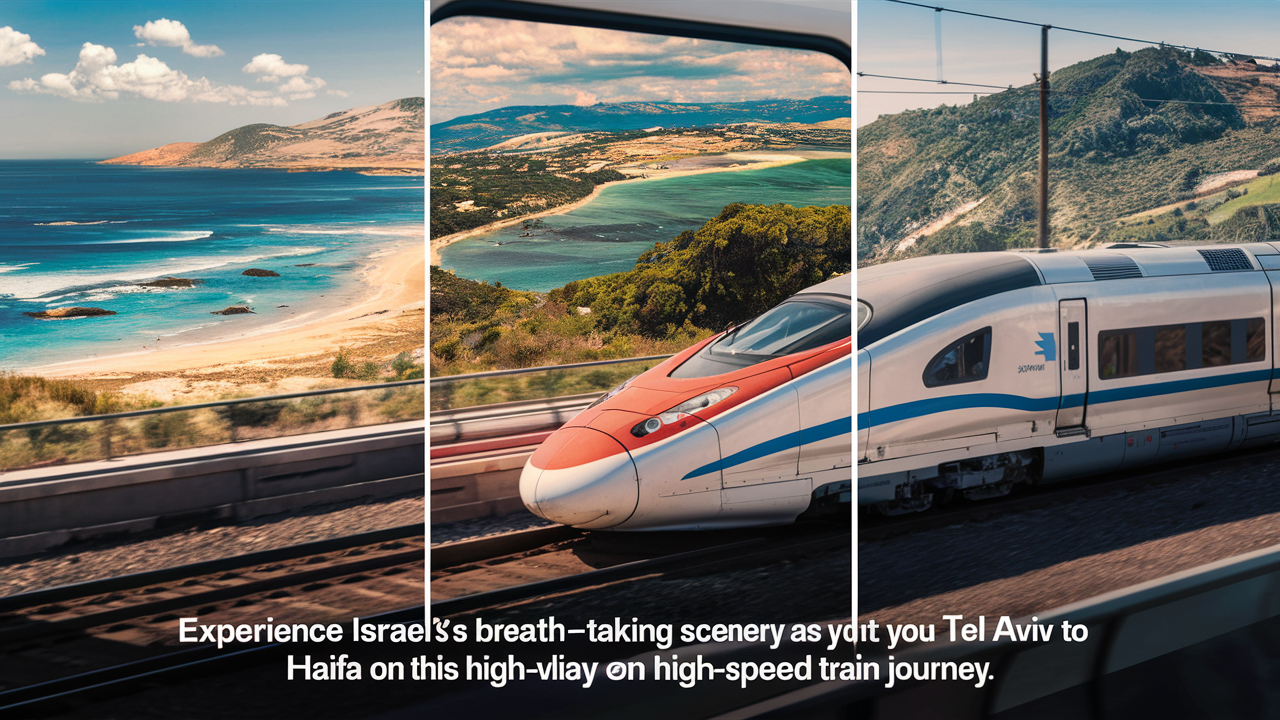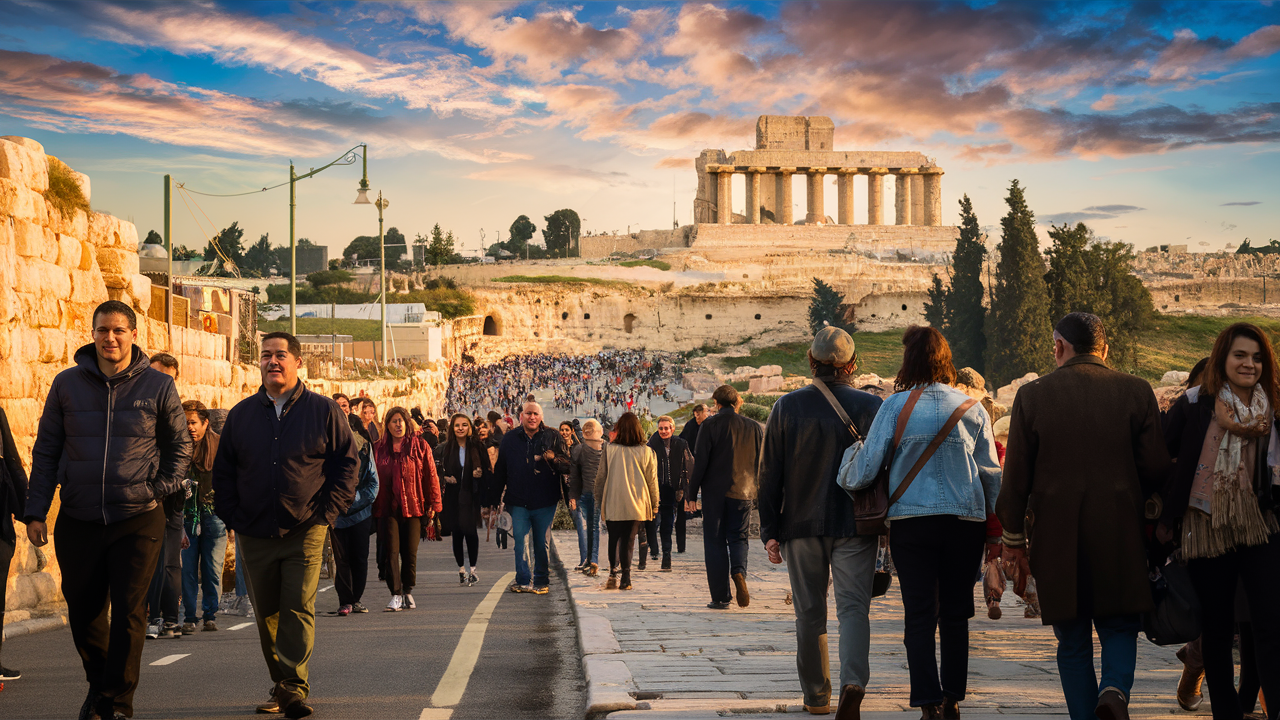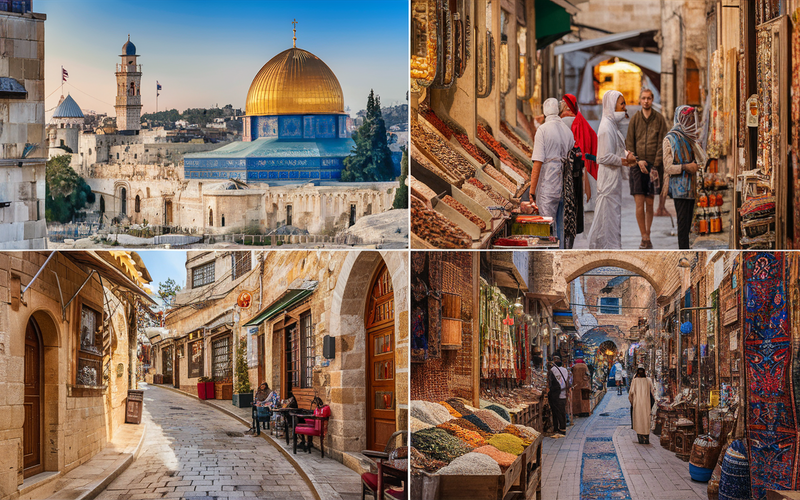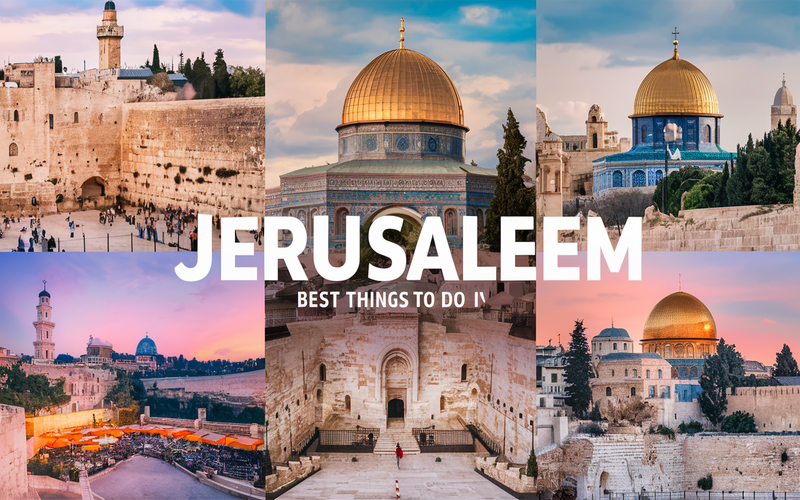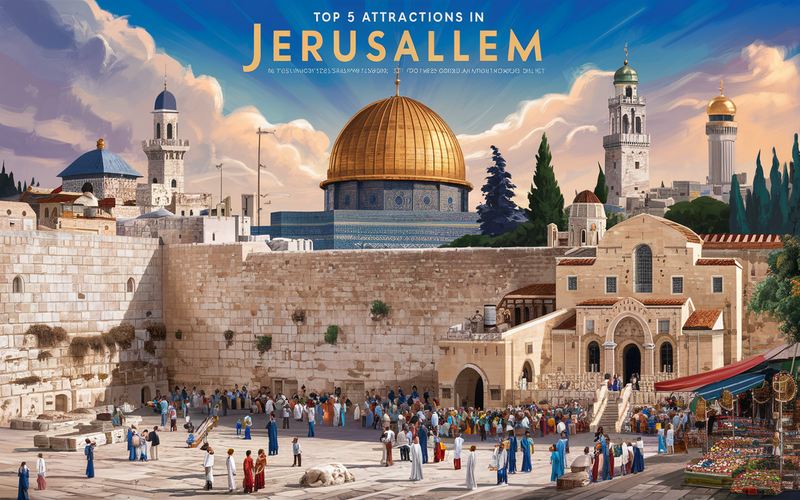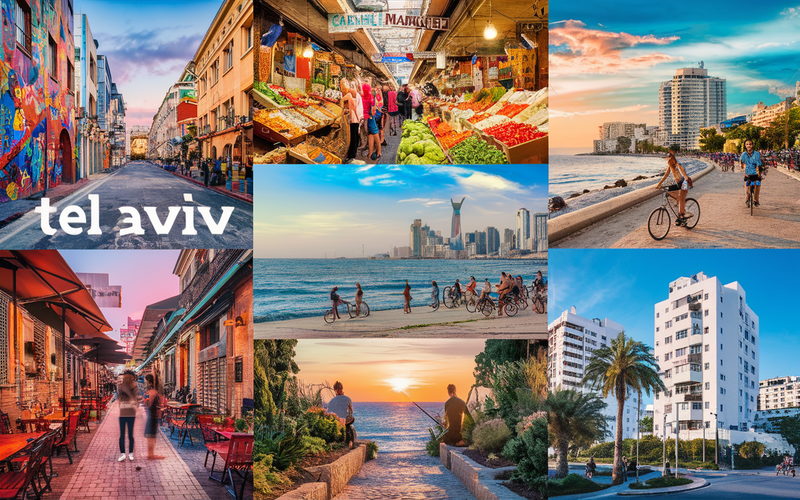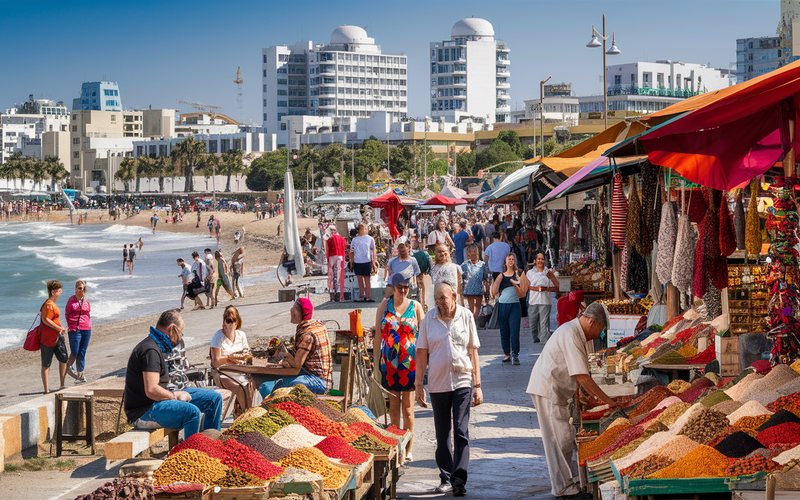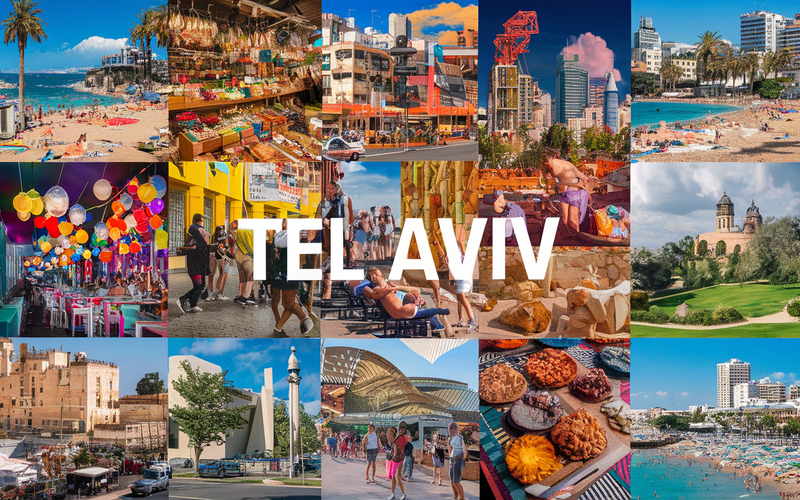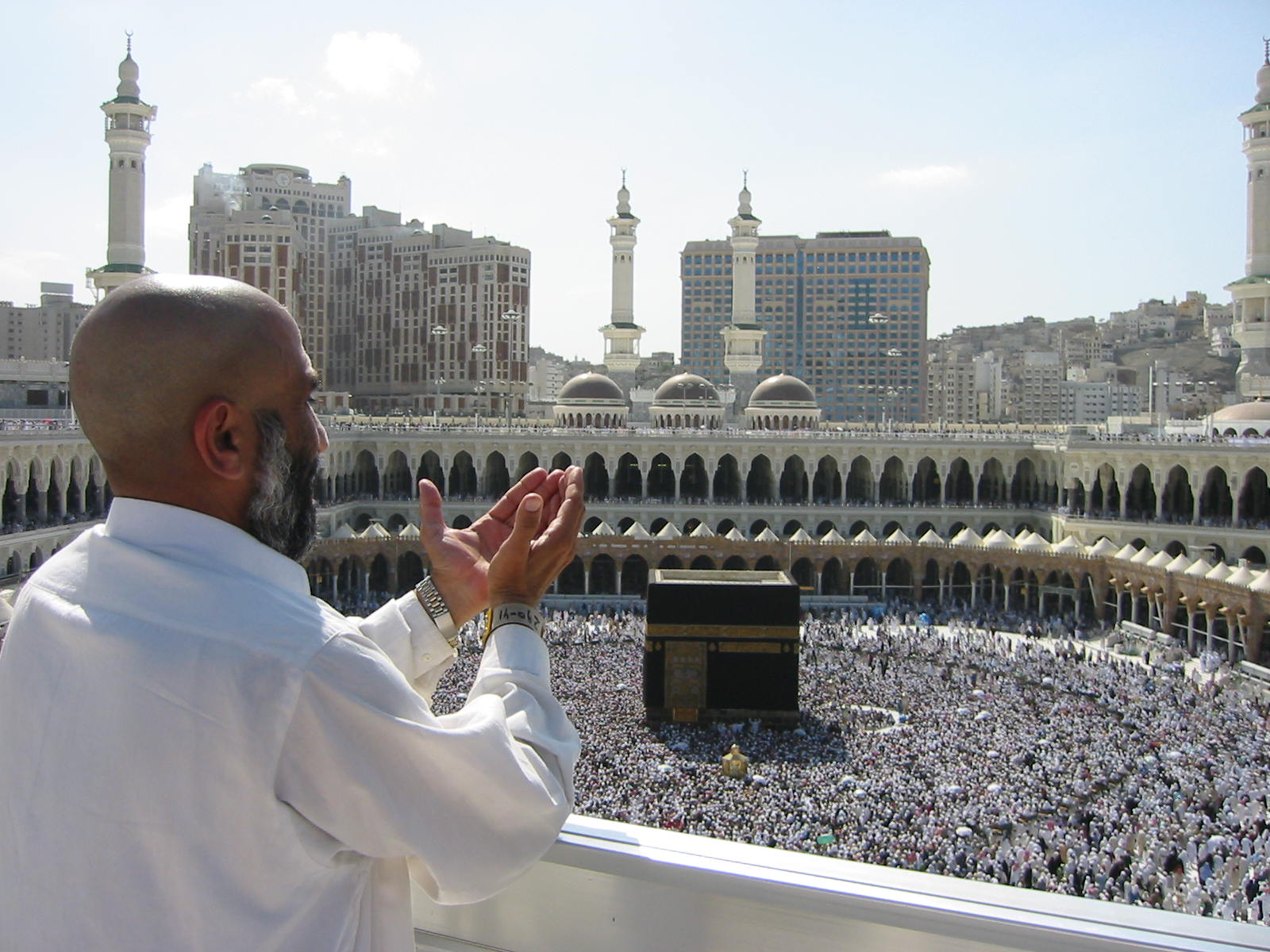Plan Your Travel To Israel
Israel Travel Essentials
Ideal Duration: 7 - 10 days
Currency: New Israeli Shekel (ILS)
Best Time: December - April Read More
Budget: Moderate
"Where the history comes alive"
Israel Tourism
Israel, a small but culturally rich nation in the Middle East, offers a blend of history, spirituality, and modernity. Jerusalem, the capital, is a city of profound significance with its historic Old City, Western Wall, and the Dome of the Rock. Explore the ancient Masada fortress, the vibrant Tel Aviv beachfront, and the serene shores of the Dead Sea. Israel's landscapes range from the lush Galilee region to the stark beauty of the Negev Desert. The cuisine, with dishes like falafel and hummus, is a delectable experience. With a deep cultural heritage, warm hospitality, and a strong sense of spirituality, Israel invites travelers to explore its history, embrace its modernity, and experience its unique blend of tradition and innovation.
Must Know Before You Travel to Israel
- Visa Requirements: Check the visa requirements for your nationality before traveling to Israel.
- Security Precautions: Stay updated on local security conditions and follow any advisories from your government.
- Currency: The currency is the New Israeli Shekel (NIS). Credit cards are widely accepted.
- Language: Hebrew and Arabic are the official languages, but English is commonly spoken.
- Local Customs: Respect religious sites and dress modestly when visiting them.
- Shabbat: Be aware that many businesses close from Friday evening to Saturday evening during Shabbat.
- Kosher Food: Israel offers a variety of kosher and non-kosher dining options.
- Public Transportation: Buses and trains are popular means of travel. Taxis are also readily available.
Tourist Places to Visit In Israel
Jerusalem
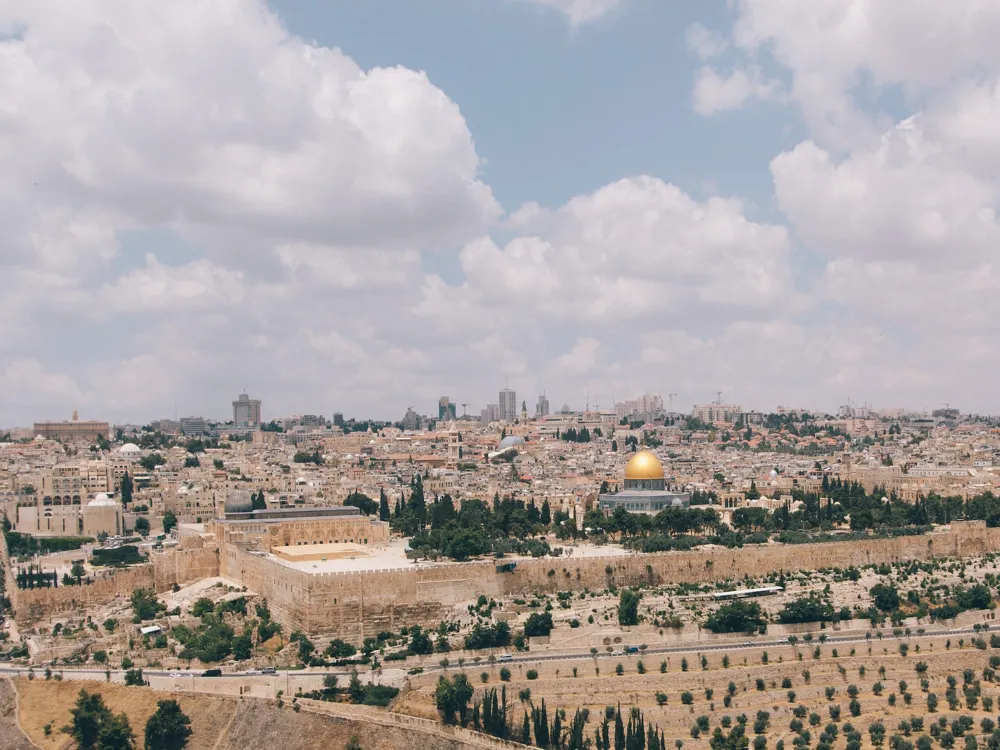
Tel Aviv
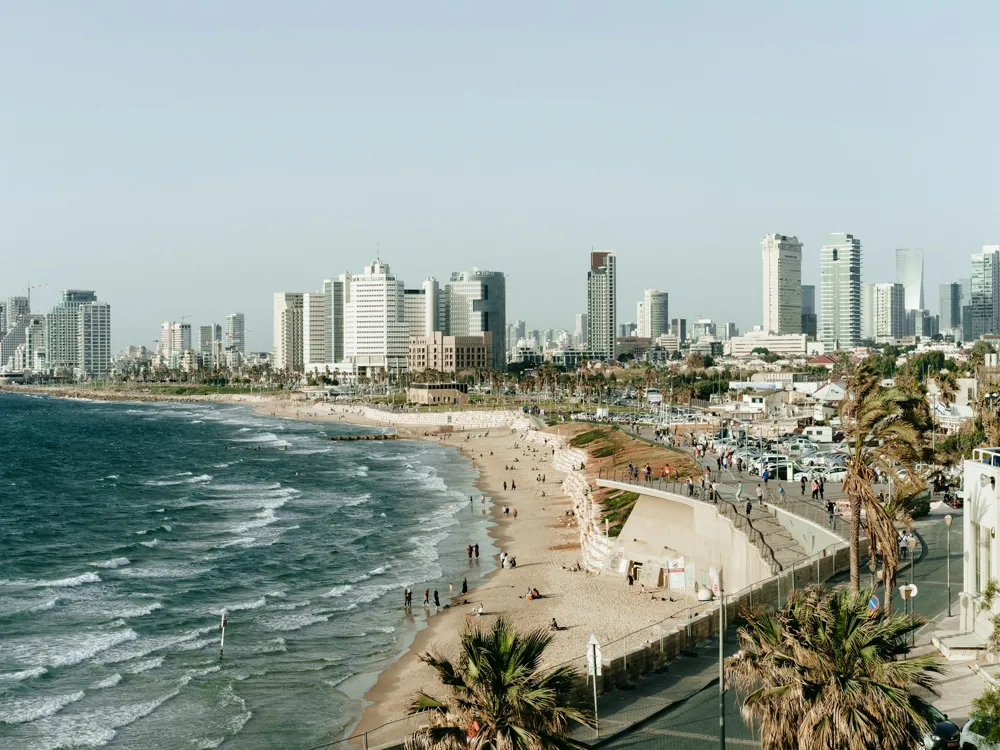
Israel Travel Packages
Compare quotes from upto 3 travel agents for free
View All Packages For Israel
More on Israel Travel
All collections about Israel
Best time to visit Israel
December to April is the best time to visit Israel. This Middle Eastern country is beautiful and overflows with tourists during the peak season. The year starts with spiritual Hanukk (Read More)ah and its treats and customs. The colder months in the peak season from November to March are the best to experience the tranquillity of the Dead Sea. June, July and August are also crowded in Israel with tourists looking forward to experiencing the best of the country without much crowds around. However, if you wish to enjoy Israel at its calmest and loneliest, book your tickets for May or September. During these off months, you will have the magnificent chance of witnessing the abandoned cities of Israel in context of the holiest days of Yom Kippur. ah and its treats and customs. The colder months in the peak season from November to March are the best to experience the tranquillity of the Dead Sea. June, July and August are also crowded in Israel with tourists looking forward to experiencing the best of the country without much crowds around. However, if you wish to enjoy Israel at its calmest and loneliest, book your tickets for May or September. During these off months, you will have the magnificent chance of witnessing the abandoned cities of Israel in context of the holiest days of Yom Kippur.
Top Stories about Israel Tourism
Read More on Israel Travel
Exchanging money in Israel:
When visiting Israel, it's important to know that the currency is the New Israeli Shekel (NIS). Exchanging money is easy, with numerous currency exchange offices, banks, and ATMs available throughout the country. You'll find the best exchange rates at banks, and major credit cards are widely accepted. It's advisable to carry some cash for small purchases, as not all places accept cards. Be mindful of exchange rates and fees, and it's wise to notify your bank about your travel plans to avoid card issues. ATMs are readily accessible in cities, making it convenient to withdraw Shekels.
Nightlife in Israel:
Israel's nightlife scene is vibrant and diverse, offering something for everyone. Tel Aviv, in particular, is known for its lively nightlife, with numerous bars, clubs, and beachfront parties that continue into the early morning hours. Jerusalem also has its share of cozy pubs and live music venues. For a unique experience, visit the desert city of Eilat, where you can enjoy beach parties and dance under the stars. Israel's nightlife embraces a mix of cultures and music genres, making it a memorable aspect of your visit.
Shopping in Israel:
Israel is a shopper's paradise, offering a blend of traditional markets (shuks) and modern malls. Jerusalem's Old City is famous for its historic markets, where you can haggle for spices, jewelry, and souvenirs. Tel Aviv boasts high-end fashion boutiques and international brands in its shopping districts. Carmel Market is a must-visit for fresh produce, street food, and eclectic finds. For unique art and crafts, head to the artist colonies in Safed and Ein Hod. Don't forget to sample the delicious local delicacies while shopping!
Festivals in Israel:
Israel is a land of diverse celebrations and festivals, offering a glimpse into its rich cultural tapestry. Experience the joy of Hanukkah, Passover, and other Jewish holidays when the entire nation comes alive with traditions and feasts. Tel Aviv's Pride Parade is a vibrant celebration of LGBTQ+ rights. The Jerusalem International Film Festival showcases cinematic talent from around the world. For music enthusiasts, the Red Sea Jazz Festival in Eilat is a must-attend event. These festivals provide a unique opportunity to immerse yourself in Israeli culture and traditions.
Hygiene in Israel:
Israel maintains high standards of hygiene and cleanliness. Tap water is safe to drink throughout the country, and you'll find public restrooms readily available in urban areas. It's advisable to carry hand sanitizer for added protection. Sunscreen is essential due to the Mediterranean climate, and insect repellent may be necessary in certain regions. Beaches and swimming pools have strict rules about showering before entering the water. Israel places a strong emphasis on cleanliness and public health, ensuring a comfortable and safe environment for tourists.
Tips for visiting Israel:
- Respect local customs and traditions, especially when visiting religious sites.
- Stay hydrated in the Mediterranean climate by drinking plenty of water.
- Check the security situation before traveling, as Israel can be subject to geopolitical tensions.
- Learn some basic Hebrew or Arabic phrases to enhance your communication.
- Dress modestly when visiting religious sites and be mindful of local dress codes.
- Carry small denominations of the local currency for small purchases.
- Explore the diverse cuisine, including falafel, hummus, and shawarma, for a culinary adventure.
Food in Israel:
Israeli cuisine is a delectable fusion of flavors influenced by Jewish, Middle Eastern, and Mediterranean traditions. Try the iconic falafel, a deep-fried chickpea or fava bean patty, served in pita with fresh salads and tahini. Hummus, a creamy chickpea dip, is a staple. Savor shawarma, thin slices of roasted meat in a pita, and don't miss out on the mouthwatering sabich, a sandwich made with eggplant, eggs, and tahini. Fresh fruits, like pomegranates and dates, are abundant. Seafood is a highlight, with dishes like grilled fish or shrimp. Israeli cuisine promises a delightful culinary journey for food enthusiasts.
Photos of Israel
All Country Photos Israel
Popular Questions And Answers on Israel
What is the history of Israel's establishment?
Israel was established as a modern nation in 1948, following the United Nations' approval of the partition plan for Palestine. This plan divided the former British Mandate into separate Jewish and Arab states.
What is the significance of Jerusalem in Israel?
Jerusalem is of great religious and historical significance to Jews, Christians, and Muslims. It is home to important religious sites, such as the Western Wall, the Church of the Holy Sepulchre, and the Dome of the Rock.
What is the conflict between Israel and Palestine about?
The Israeli-Palestinian conflict is a long-standing political and territorial dispute primarily over issues such as borders, refugees, and the control of Jerusalem. It has been ongoing for decades and has resulted in multiple conflicts and peace efforts.
What is the significance of the Dead Sea?
The Dead Sea, located between Israel and Jordan, is famous for its extremely high salt content, which allows people to float on its surface. It's also known for its mineral-rich mud, which is used in skincare products.
What are some famous tourist attractions in Israel?
Israel offers a wide range of attractions, including the ancient city of Petra, the Masada fortress, the historic city of Tel Aviv, the Baha'i Gardens in Haifa, and the Sea of Galilee. The country is also known for its beautiful beaches along the Mediterranean Sea.
What is the role of the Israel Defense Forces (IDF)?
The IDF is the military of Israel and is responsible for the country's defense and security. It encompasses all branches of the military, including the army, air force, and navy.
What is the significance of the Dead Sea in Israel?
The Dead Sea, located at the lowest point on Earth, is renowned for its high salt concentration, allowing people to float effortlessly on its surface. It is also known for its therapeutic mud and minerals and is a popular tourist destination.
What is the status of the Golan Heights?
The Golan Heights is a region that Israel captured from Syria in 1967. It remains a subject of international dispute, with Israel asserting sovereignty over the area, while many countries consider it occupied territory.
How has Israel's economy developed in recent years?
Israel has a strong and technologically advanced economy, known for its innovation and high-tech industry. It has seen significant economic growth and development in recent years.
What is the relationship between Israel and the United States?
Israel and the United States have a close and strategic relationship, with the U.S. providing military and economic aid to Israel. This partnership is based on shared values and common interests.

